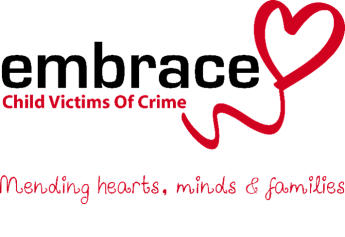Nothing is more important than children’s welfare. Children who need help and protection deserve high quality and effective support as soon as a need is identified. Everyone who comes into contact with children and families has a role to play.
Safeguarding and promoting the welfare of children is defined as:
- protecting children from maltreatment
- preventing impairment of children’s health or development
- ensuring that children grow up in circumstances consistent with the provision of safe and effective care
- taking action to enable all children to have the best outcomes
Source – Cambridgeshire and Peterborough Safeguarding Adults and Children Board
Schools have a duty to follow the latest requirements from Keeping Children Safe in Education https://www.gov.uk/government/publications/keeping-children-safe-in-education–2 which includes the duty to teach preventative skills and attitudes and to rigorously training staff. The teaching of a comprehensive, spiral Relationships and RSE programme as part of PSHE is recognised as having a positive effect on children and young people’s safeguarding skills and their confidence in recognising and asking for help in abusive situations.
By the end of primary school pupils should know
There are some aspects of education about safety which are statutory as part of the Relationships Education and Health Education Guidance:
- how to recognise who to trust and who not to trust, how to judge when a friendship is making them feel unhappy or uncomfortable, managing conflict, how to manage these situations and how to seek help or advice from others, if needed.
- the importance of permission-seeking and giving in relationships with friends, peers and adults.
- that people sometimes behave differently online, including by pretending to be someone they are not.
- the rules and principles for keeping safe online, how to recognise risks, harmful content and contact, and how to report them.
- how to critically consider their online friendships and sources of information including awareness of the risks associated with people they have never met.
- what sorts of boundaries are appropriate in friendships with peers and others (including in a digital context)
- about the concept of privacy and the implications of it for both children and adults; including that it is not always right to keep secrets if they relate to being safe.
- that each person’s body belongs to them, and the differences between appropriate and inappropriate or unsafe physical, and other, contact.
- how to respond safely and appropriately to adults they may encounter (in all contexts, including online) whom they do not know.
- how to recognise and report feelings of being unsafe or feeling bad about any adult. how to ask for advice or help for themselves or others, and to keep trying until they are heard.
- how to report concerns or abuse, and the vocabulary and confidence needed to do so.
- where to get advice e.g. family, school and/or other sources.
Source: Relationships Education RSE and Health Education (DfE) Relationships Education, Relationships and Sex Education and Health Education guidance (publishing.service.gov.uk)
By the end of secondary school pupils should know
- how to: determine whether other children, adults or sources of information are trustworthy: judge when a family, friend, intimate or other relationship is unsafe (and to recognise this in others’ relationships); and, how to seek help or advice, including reporting concerns about others, if needed.
- the characteristics of positive and healthy friendships (in all contexts, including online) including: trust, respect, honesty, kindness, generosity, boundaries, privacy, consent and the management of conflict, reconciliation and ending relationships. This includes different (non-sexual) types of relationship.
- that some types of behaviour within relationships are criminal, including violent behaviour and coercive control.
- what constitutes sexual harassment and sexual violence and why these are always unacceptable.
- the legal rights and responsibilities regarding equality (particularly with reference to the protected characteristics as defined in the Equality Act 2010) and that everyone is unique and equal.
- about online risks, including that any material someone provides to another has the potential to be shared online and the difficulty of removing potentially compromising material placed online.
- not to provide material to others that they would not want shared further and not to share personal material which is sent to them.
- that sharing and viewing indecent images of children (including those created by children) is a criminal offence which carries severe penalties including jail.
- what to do and where to get support to report material or manage issues online.
- the concepts of, and laws relating to, sexual consent, sexual exploitation, abuse, grooming, coercion, harassment, rape, domestic abuse, forced marriage, honour-based violence and FGM, and how these can affect current and future relationships.
- how people can actively communicate and recognise consent from others, including sexual consent, and how and when consent can be withdrawn (in all contexts, including online).
- how to identify harmful behaviours online (including bullying, abuse or harassment) and how to report, or find support, if they have been affected by those behaviours.
Source: Relationships Education RSE and Health Education (DfE) Relationships Education, Relationships and Sex Education and Health Education guidance (publishing.service.gov.uk)
Local Support

Cambridgeshire and Peterborough Safeguarding Adults and Children Board
Multi-agency safeguarding training is important for supporting the collective understanding of local need and for practitioners to be effective in universal services and across the safeguarding pathway. This spans from early help through to targeted and specialist services. To be effective, practitioners need to continue to build their knowledge and skills and be aware of
Read More About Cambridgeshire and Peterborough Safeguarding Adults and Children Board
Embrace Child Victims Of Crime
Helping young crime victims and witnesses recover from trauma Embrace Child Victims Of Crime is a specialist support service for young victims and witnesses to crime on behalf of the Police and Crime Commissioner for Cambridgeshire and Peterborough. The aim of the Cambridgeshire-based charity is to help children, young people, and families from all over
Read More About Embrace Child Victims Of CrimeNSPCC
Whether you’re looking for advice, or are worried about a child, the NSPCC have got a range of helplines to support you. While we understand that your school will have procedures and policies in place for safeguarding issues, we recognise that if you’re working with and supporting children and families, sometimes you might need to
Read More About NSPCC
SAFE
We are a voluntary service focused on supporting young people identified by services as being at significant/moderate risk of Criminal Exploitation within Cambridgeshire and Peterborough. We can work with young people up to the age of 17, currently we have no minimum age restriction. We take referrals from a range of statutory and community services
Read More About SAFEResources
Documents
Key Stage 1
Key Stage 2
Teacher Guidance
- Cambridgeshire and Peterborough Adult Safeguarding Tool Box
- Cambridgeshire and Peterborough Child Safeguarding Tool Box May 2019
- Cambridgeshire and Peterborough Safeguarding Children Partnership Board Identifying Child Abuse Guidance 2020
- Cambridgshire and Peterborough Safeguarding Adults Partnership Board What is Abuse 2020 Guidance
External Links
- Cambridgeshire and Peterborough Domestic Abuse and Sexual Abuse Partnership for Young People
- Educate Against Hate
- NSPCC Safer Recruitment in-Education Training
- NSPCC Child Protection in Schools Online Course
- NSPCC Keeping Children Safe – Support for parents – underwear rule
- NSPCC Research Resources Schools – Pants Teaching
- NSPCC Safeguarding self-assessment tool
- Safeguarding children GOV
- Sexual Assault Referral Centre



